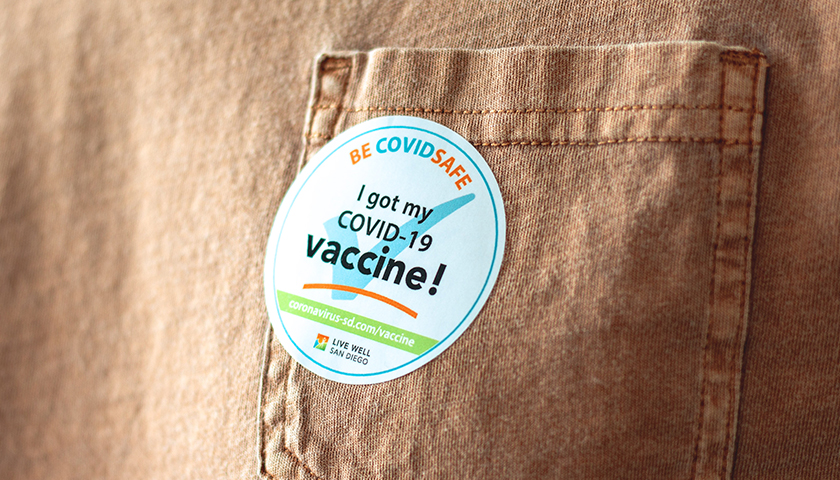by Scott McClallen
After Michigan missed President Joe Biden’s vaccine deadline of 70% injected with a first COVID-19 vaccine by July 4, Gov. Gretchen Whitmer bet big on a vaccine lottery, tossing in $5 million of taxpayer-funded prizes.
In the meantime, the Michigan Senate Fiscal Agency estimates Michigan won’t reach the 70% benchmark for another year.
As of July 5, the state averaged 4,174 daily doses but only 1,740 first doses (0.1%) of the population.
“Given that it would require ~630,300 vaccines to reach 70% vaccinated for >16 & current pace is ~1,700/day, the est. date for 70% threshold is 7/4/22,” the SFA tweeted Wednesday.
While Michigan boasts more than a million people having entered the sweepstakes, most of them received vaccinations pre-sweepstakes.
Despite media and politicians declaring the vaccine lottery a win, a study published in the Journal of American Medical Association network says differently.
“The Vax-a-Million promotion was a resounding success for Ohio, with major increases in vaccinations in the first two weeks of the promotion,” Ohio Gov. Mike DeWine said in a statement on June 23rd after the final prizes were drawn.
He’s partly right. While Ohio saw an initial boost in vaccines right after the lottery announcement, so did states without lottery systems, likely because vaccine eligibility then expanded to 12-15-year olds.
Boston University School of Medicine (BUSM) researchers compared vaccination rates in Ohio with states without lottery incentives.
“Prior evaluations of the Ohio vaccine incentive lottery did not account for other changes in Covid-19 vaccination rates in the United States, such as those that may have been due to expansion of vaccination to ages 12-15,” Allan J. Walkey, MD, senior author of the study and Professor of medicine and physician at BUSM, said in a statement.
Shortly after, Gov. Whitmer crafted Michigan’s vaccine lottery modeled after Ohio’s, assuming it worked. Whitmer aims to boost vaccination rates by 9 percentage points to reach 70% of Michiganders with a first vaccine after injections plummeted.
“We are tapping into our competitive spirit as Michiganders,” Whitmer said. “I know some of you must be thinking, ‘Didn’t Ohio do this first?’ Well, yes, they did. But in typical Michigan fashion, we wanted to do it bigger and better than they can do it in Ohio, and that’s what we are … here to announce. So the MI Shot to Win Sweepstakes will save and change lives.”
Whitmer’s office hasn’t respond to a request for comment. It’s yet to be known if Michigan blew $5 million on a bad bet.
“Our results suggest that state-based lotteries are of limited value in increasing vaccine uptake. Therefore, the resources devoted to vaccine lotteries may be more successfully invested in programs that target underlying reasons for vaccine hesitancy and low vaccine uptake,” Walkey said.
– – –
Scott McClallen is a staff writer covering Michigan and Minnesota for The Center Square. A graduate of Hillsdale College, his work has appeared on Forbes.com and FEE.org. Previously, he worked as a financial analyst at Pepsi.








